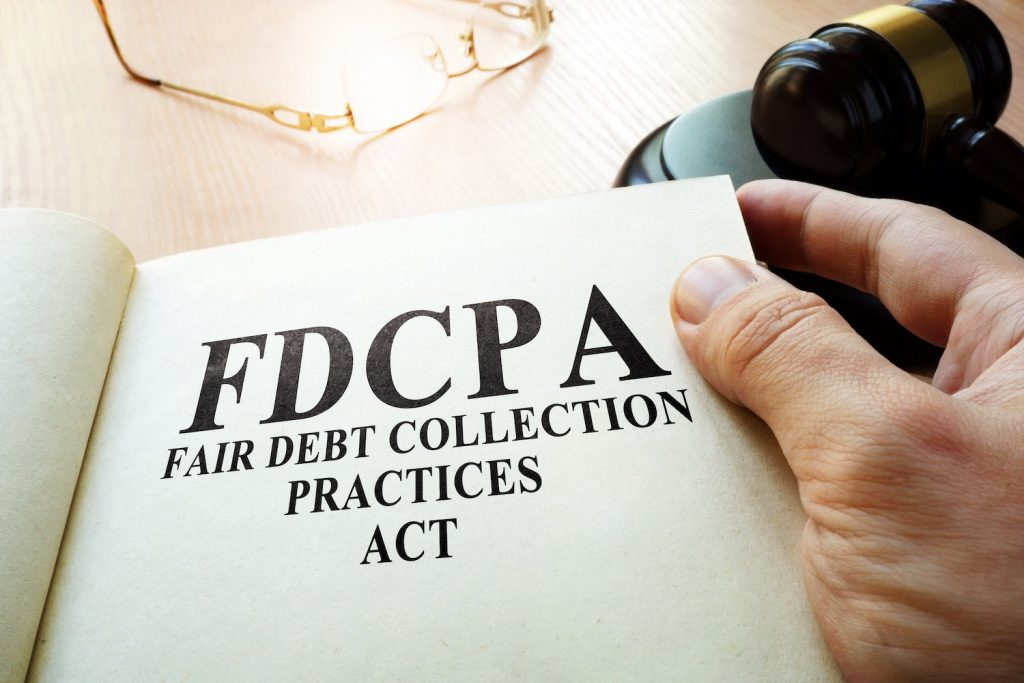Debt collection is a highly regulated industry due to a history of unfair and predatory practices. However, most of the rules and regulations were created in the 1970s, long before the prevalence of digital communication media such as email and social media. In 2021, a new rule called Regulation F will update debt collection regulations.
What is Regulation F of the FDCPA?
Regulation F is a set of rules created by the Consumer Financial Protection Bureau (CFPB) to update and expand the current Fair Debt Collection Practices Act (FDCPA). Effective Nov 30, 2021, the final rules pertain to “communications in connection with debt collection and prohibitions on harassment or abuse, false or misleading representations, and unfair practices in debt collection,” according to the CFPB.
Regulation F has two parts. Part one addresses debt collection communications and unfair practices, expanding upon existing FDCPA rules. Part two addresses information that debt collectors must disclose to debtors at the beginning of the collection process.
Does Regulation F replace FDCPA?
No, Regulation F adds to and clarifies FDCPA, but does not replace it.
What is the purpose of Regulation F?
Regulation F is designed to modernize FDCPA by regulating the use of digital communications and clarifying the process of providing debt validation notice and disclosure to debtors.
Originally enacted by Congress in 1977 to prohibit unfair and abusive debt collection practices, the original FDCPA regulation predates modern communication technologies like email, text, and social media. Until Regulation F, no changes have been made to the FDCPA, leading to vaguely defined rules about the use of digital communications for debt collection. For example, it was previously unclear whether sending text and email messages in addition to making phone calls violated limits on how frequently collectors can attempt to reach debtors. Because of this uncertainty, many debt collectors have avoided using digital communications and relied instead on phone calls.
Regulation F adds several rules about digital communications and other debt collection practices, such as the frequency and content of email, text, and social media messages.
What does Regulation F mean for creditors?
While Regulation F and the original FDCPA rules apply primarily to third-party debt collectors, the new rules have implications for first-party creditors. Typical the original creditor who is owed a personal or business debt will hire a third-party debt collector—such as a collection agency or attorney—to collect their debt. Under Regulation F, the creditor must provide additional itemized information that distinguishes between the principal amount, interest amount, and any penalties.
Creditors must also provide an itemization date, which must be one of the following:
- The date of the last invoice or statement received from the debtor
- The charge-off date
- The last payment date
- The transaction date
- The judgment date
What does Regulation F mean for debtors?
Under Regulation F, debtors have additional protections and choices about how they are contacted by debt collectors.
Debtors can set limits on how collectors contact them through particular methods. They can also prohibit debt collectors from contacting specific addresses or phone numbers. Debtors can not be contacted through their work email address unless they have previously used the email address to communicate with a collector or provided them consent to do so. Additionally, collectors must provide a way to opt out that does not require a fee or any additional information.
Under Regulation F, debt collectors must notify debtors before negatively impacting their credit scores.
What does Regulation F mean for debt collectors?
Regulation F provides debt collectors guidance and sets limits on digital communications and other collections practices.
Debt validation notices, which are the process of notifying a debtor that they are being sent to collections, now require significantly more information and disclosures. Collectors must now use a standard template.
Regulation F clarifies and limits the use of electronic communications including email, text messaging, and social media. Specifically, collectors can not contact debtors on social media in any way that is visible to the public or the debtor’s contacts. Collectors must disclose themselves as such when contacting debtors on social media.
Voicemails are now restricted to specific information known as a limited content message. Collectors must provide only the agency name and contact information and request that the debtor call them back. They do not have to disclose that they are debt collectors.
The new rule also limits the frequency with which collectors can attempt to call debtors to seven calls over seven days, with no more than one call per day. If a collector speaks with a debtor over the phone, they must wait seven days before reaching out again, unless the debtor has given permission.
Regulation F also stipulates that collectors can not threaten legal action against debtors with time-barred debts.
Conclusion
The introduction of Regulation F to the FDCPA is an important move to modernize debt collection law. It clarifies the use of digital communications so that both debt collectors and consumers can understand their rights and settle debts legally and safely.
Empire Credit and Collection is compliant with Regulation F and all FDCPA laws. If someone owes you money, get a free collection quote today! You will not pay us a dime until we get you paid, guaranteed.


